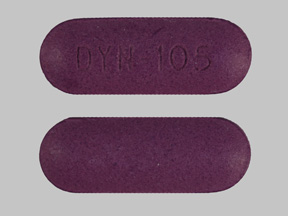
Solodyn Coupons & Savings Card – Discount Prices from $77.70
Brand for: Minocycline er
My prescription
Edit
105MG, Minocycline ER (30 Tablet Extended Release 24 Hours)
Select pharmacy

CVS
$80.19
COUPON PRICE
Walgreens
$77.70
COUPON PRICE
Albertsons
$156.88
COUPON PRICE
Walmart
$931.25
COUPON PRICESolodyn savings card
Show this card to your pharmacist
Walgreens
$77.70
BIN
ID
PCN
GRP
019876
LH97A8FD27
CHIPPO
LHX
Powered by
Related tetracycline antibiotics prescriptions
More prescriptions for urinary tract infection
Related tetracycline antibiotics prescriptions
More prescriptions for urinary tract infection
Price history for Solodyn (brand) & Minocycline ER (generic)
30 Tablet Extended Release 24 Hours, 105MG
Average retail price for Solodyn
Average retail price for Minocycline ER
Average SaveHealth price for Minocycline ER
Our price history data is based on aggregated prescription data collected from participating pharmacies in America. Our prescription data updates daily to reflect the latest price changes. If you notice a missing data point, it means there wasn't sufficient data available to generate a monetary value for that date.
Over the last 12 months, the average discount price of Solodyn is $476.09 using the SaveHealth savings card. That's an average savings of -443.54% on Solodyn with our discount card.
*Retail prices are based on pharmacy claims data, and may not be accurate when we don't have enough claims.
Solodyn (Minocycline ER) dosage forms
Dosage Quantity Price from Per unit 55MG 30 Tablet Extended Release 24 Hours $50.93 $1.70 65MG 30 Tablet Extended Release 24 Hours $136.50 $4.55 80MG 30 Tablet Extended Release 24 Hours $80.19 $2.67 105MG 30 Tablet Extended Release 24 Hours $77.70 $2.59 115MG 30 Tablet Extended Release 24 Hours $154.56 $5.15
| Dosage | Quantity | Price from | Per unit |
|---|---|---|---|
| 55MG | 30 Tablet Extended Release 24 Hours | $50.93 | $1.70 |
| 65MG | 30 Tablet Extended Release 24 Hours | $136.50 | $4.55 |
| 80MG | 30 Tablet Extended Release 24 Hours | $80.19 | $2.67 |
| 105MG | 30 Tablet Extended Release 24 Hours | $77.70 | $2.59 |
| 115MG | 30 Tablet Extended Release 24 Hours | $154.56 | $5.15 |
What is SOLODYN used to treat?
Solodyn is used to treat moderate to severe acne in patients who are 12 years of age and older. It is an extended-release form of minocycline, which is an antibiotic that helps reduce the bacteria that cause acne and decreases inflammation.
What are the long term side effects of SOLODYN?
Long-term use of Solodyn (minocycline) can potentially lead to several side effects. These may include skin discoloration, autoimmune disorders, liver damage, and increased intracranial pressure. Additionally, long-term use can result in changes in skin pigmentation and teeth discoloration. It is important for patients to have regular follow-ups with their healthcare provider to monitor for these potential side effects.
Using the SaveHealth discount card, what is the price of Solodyn without insurance?
Using the SaveHealth discount card, the price of Solodyn without insurance is $77.70.
What is the price of Solodyn at CVS?
The price of Solodyn at CVS is $80.19.
What is the price of Solodyn at Walgreens?
The price of Solodyn at Walgreens is $77.70.
What is the price of Solodyn at Walmart?
The price of Solodyn at Walmart is $931.25.
